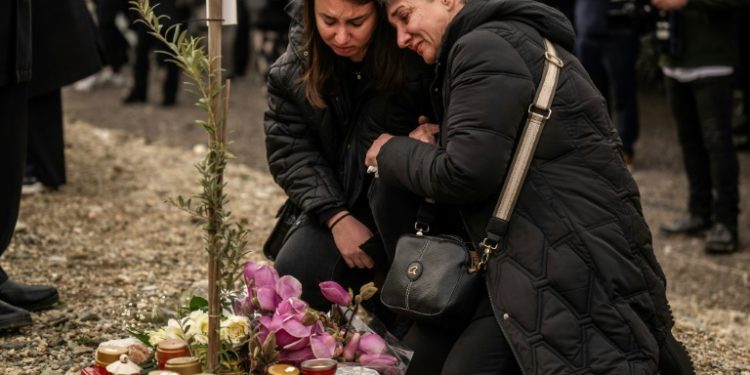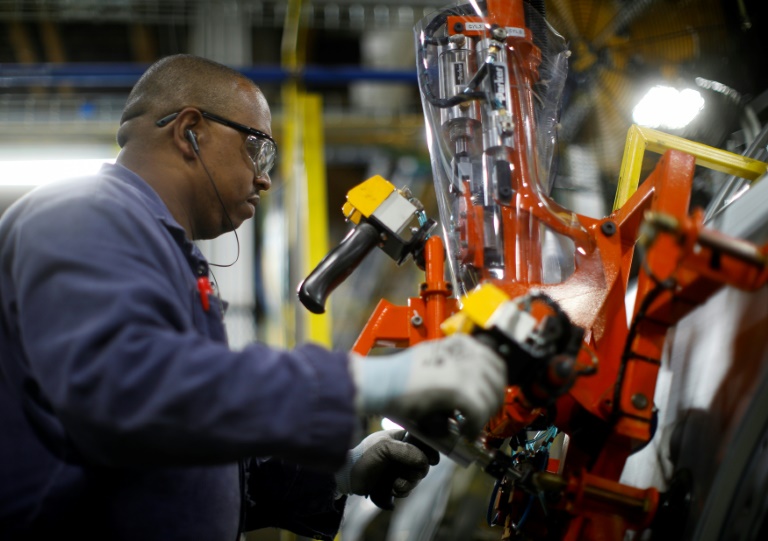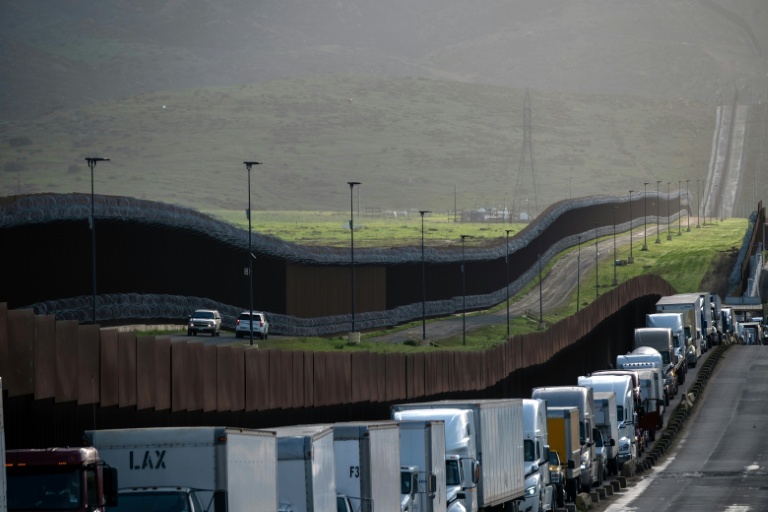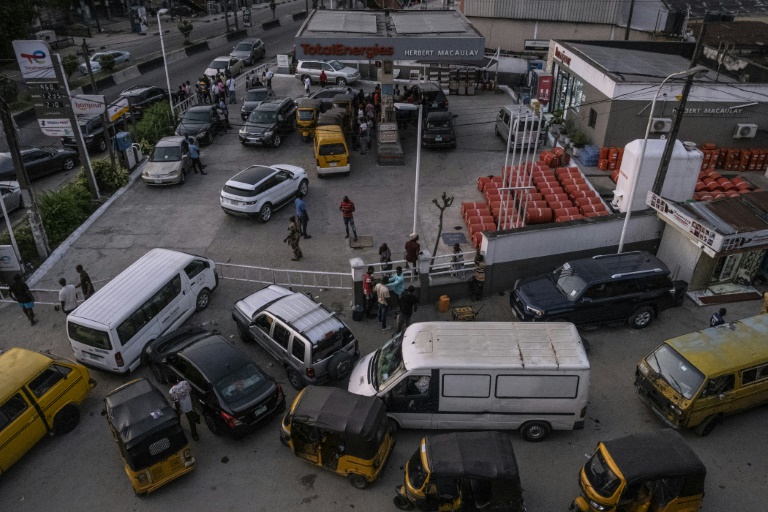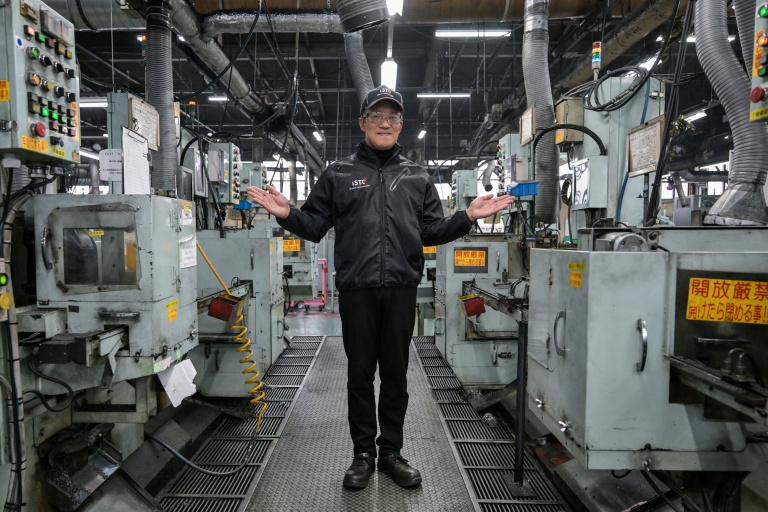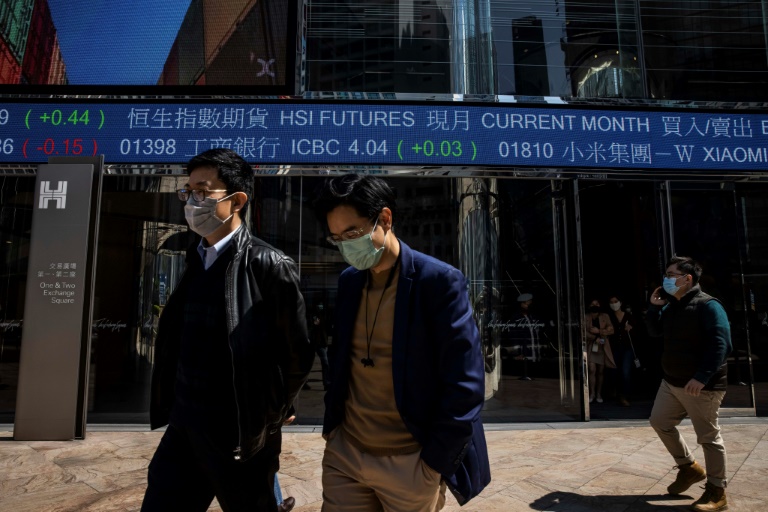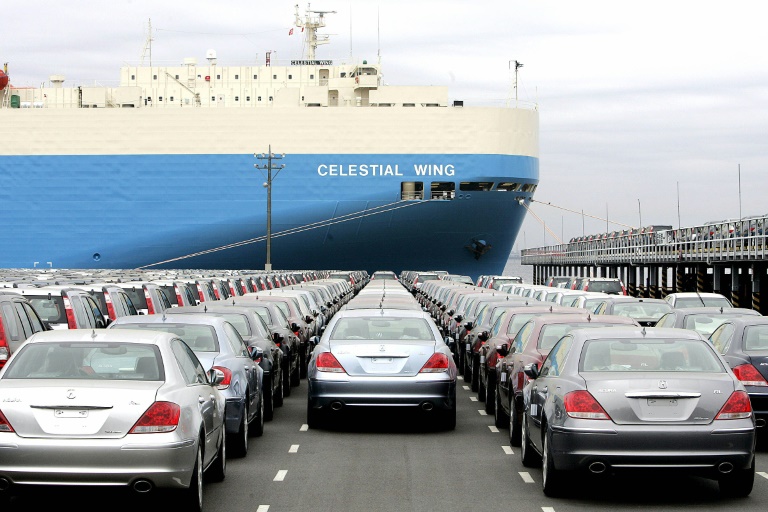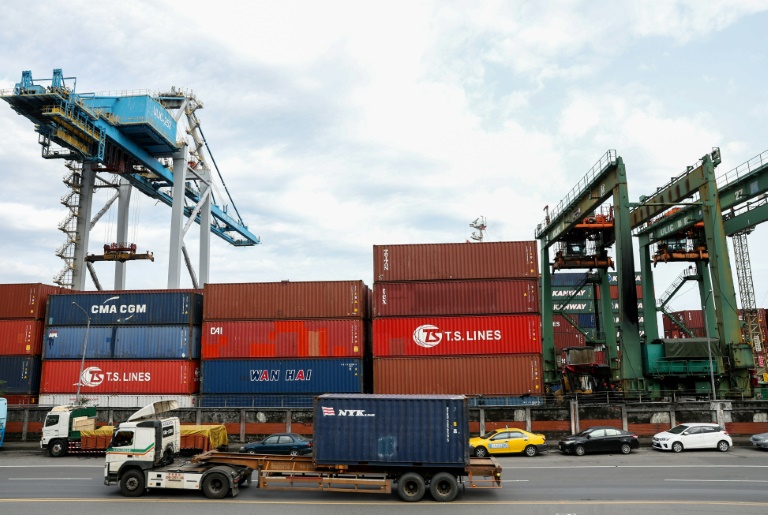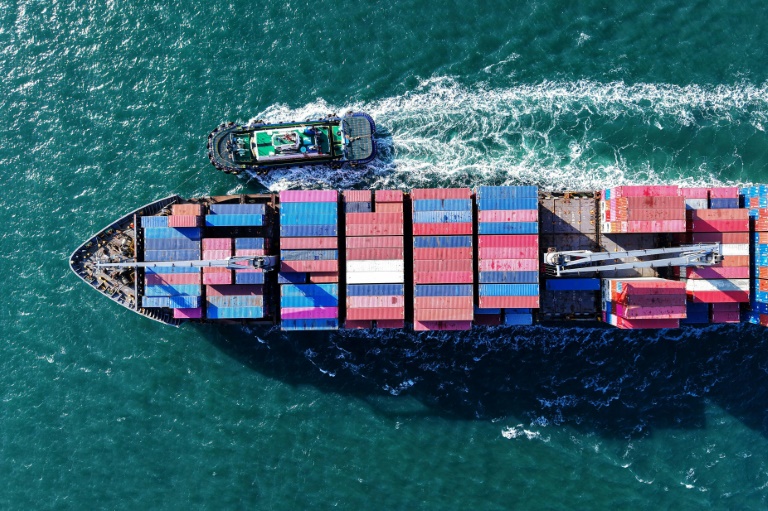Tempi (Greece) (AFP) – Church bells tolled, transport came to a halt and tens of thousands of marchers gathered across Greece on Wednesday as the country marked a year since its deadliest train crash, which killed 57 people and injured dozens more.
More than 30,000 people demonstrated in the capital, which was in the grip of a transport strike standstill, to commemorate the head-on collision on February 28, 2023, blamed by protesters on official failings and an unsafe rail system.
A definitive account of what happened and who may be at fault has not been delivered, with investigators in an official enquiry not due to finish questioning until March 8.
At a religious ceremony held at the crash site in the valley of Tempe, some 375 kilometres (233 miles) north of Athens, hundreds of relatives gathered to leave wreaths and flowers.
“Today is a day of pain,” said Antonis Psaropoulos, whose 19-year-old daughter Marthi died in the collision.
“For all of us, time stopped on February 28, 2023, a cursed day…a black hole in time.”
– ‘National trauma’ –
To Fotini Kokkala-Beza, the past year without her 20-year-old daughter Francesca has felt “like a century.”
“The cemetery has become our second home, and our home has become a cemetery.I apologise for bringing you into this inhuman world,” she said, her voice rising in anger.
The bells of every church in the country tolled in the morning 57 times — once for every victim — to mark “this national trauma” and “collective failure,” Prime Minister Kyriakos Mitsotakis said in a statement.
He said “human error inevitably met with persistent state failure”, vowing that those responsible would be brought to justice.
“We have had our fill of lies from those in power.Starting from the prime minister,” countered Ilias Papangelis, who lost his 18-year-old daughter Anastasia in the collision.
Greek civil servants staged a 24-hour walkout with other unions, including air traffic controllers, taxi drivers and public transport workers, who are also protesting at the high cost of living.
Marches to mark the disaster were held across the country.
– Trapped in wreckage –
The disaster struck when a freight train and a passenger train with over 350 people aboard — mostly students — collided near a tunnel near Tempi, north of the central city of Larissa.
Passengers described being trapped among smashed carriages and burning debris as the train keeled over.They broke windows to try to escape.
The flames left many bodies charred beyond recognition and one missing woman was never found.
The tragedy prompted three days of national mourning and mass protests in several cities, with demonstrators hurling rocks at the offices of the railway’s Italian-owned operating company, Hellenic Train.
But nearly four months later, the conservative government was comfortably re-elected.
In an interview with AFP, Marthi’s mother Maria Karystianou said she had “no faith” in Greek justice and would submit her case to the European Court of Human Rights.
Though 34 railway employees and officials face possible charges over the disaster, a trial is not expected to start before June.
– Allegations of illegal cargo –
Relatives have appointed their own experts to the case, arguing that official investigators wasted time and overlooked vital evidence.
At a press conference on Monday, the relatives’ committee of experts said state officials had failed to look into the causes of an intense fire that broke out just after the crash.
“It is certain the freight train was carrying illegal cargo.We’ve found substances used to adulterate fuel,” Karystianou told AFP.
In a speech at the European Parliament this month, she said the government had “tried to tamper with and cover up incriminating evidence”.
Potentially valuable CCTV footage was erased two weeks after the disaster without being assessed, and the site was bulldozed and paved over just days after the crash, the family’s experts said.
– Railway plagued by problems –
The transport minister in charge at the time of the crash, Kostas Karamanlis, told a parliamentary committee of inquiry this month that on-duty staff were to blame.
Safety improvements have since begun but are proceeding slowly and in sections.Campaigners say several failings that led to the disaster remain uncorrected.
Experts have warned that for decades, Greece’s 2,552-kilometre (1,585-mile) rail network has been plagued by mismanagement, poor maintenance and obsolete equipment.
A safety supervisor resigned the year before the crash, warning that infrastructure upgrades pending since 2016 were still unfinished and it was unsafe for trains to be travelling at speeds of up to 200 kilometres per hour.
“The Tempi catastrophe was the result of state negligence and general corruption, not human error,” Lysimachos Papazoglou, who lost his 22-year-old son, told reporters on Monday.
© 2024 AFP

